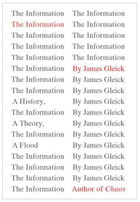“At some point, every home that has a security system will have video as a component. Law enforcement will know who comes and goes through nearly every front door.”
“In twenty years, the government will always know where your car is, the same way they can track your phone. Taxis will someday only take credit cards. Busses and trains will require you to swipe an ID, and so on. If you travel, the government will know where you went and how you got there.”
“Imagine, for example, having a smartphone, an iWatch, and a smart car. When you go to the store, the cashier will someday automatically know that you, your car, your watch, and your phone are all in the same place. That is nearly a 100% identity check. When you approach the cash register, I can imagine your phone automatically identifying itself and pulling up your photo on the register.”

